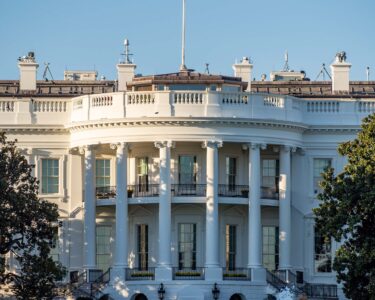In a move that has caught some by surprise, President Joe Biden has announced that he will not be seeking re-election in the upcoming 2024 presidential race. This decision, while unexpected, presents an opportunity to critically assess the impact of Biden’s presidency and to consider the future trajectory of American politics from an Average Joe’s viewpoint.
Biden’s Presidency: A Critique
Joe Biden’s presidency has been characterized by policies and actions that many argue have been detrimental to the country’s economic health, social fabric, and global standing. Key points of critique include:
- Economic Policies: The Biden administration’s economic policies have often been criticized for contributing to inflation and economic instability. The massive spending bills, such as the American Rescue Plan and the Infrastructure Investment and Jobs Act, have been seen as exacerbating national debt and leading to higher taxes.
- Energy and Environmental Policies: Biden’s focus on green energy and environmental regulations has been a point of contention. Conservatives argue that these policies have hurt the energy sector, leading to higher fuel prices and negatively impacting American energy independence.
- Border and Immigration Policies: The administration’s approach to border security and immigration has been another major area of criticism. Conservatives believe that the lack of stringent immigration enforcement has led to a crisis at the southern border, straining resources and affecting national security.
- Social Policies: Biden’s stance on social issues, including his support for progressive agendas on gender and race, has sparked significant opposition from conservatives who believe these policies undermine traditional values and societal norms.
Why Biden Chose Not to Run
Several factors likely influenced Biden’s decision not to seek re-election:
- Age and Health: At 81, Biden’s age and health have been ongoing concerns. Many believe he is stepping down to avoid the rigors of another campaign and term.
- Political Realities: The midterm elections of 2022 showed a divided nation. Biden’s declining approval ratings and the backlash against his policies might have contributed to his decision.
- Legacy Concerns: Biden might be seeking to preserve his legacy by not subjecting himself to another grueling campaign, especially one where his policies could face even more scrutiny.
The GOP’s Opportunity
Biden’s decision not to seek re-election presents a significant opportunity for conservatives. The 2024 election will be a crucial moment to advance policies that promote fiscal responsibility, energy independence, border security, and traditional values. Potential conservative candidates will need to present a clear vision that contrasts sharply with the last four years.
Potential Candidates
With Biden stepping aside, the Democratic primary is likely to be a contentious battle among progressives and moderates. This internal division could work in favor of the Republican nominee former President Donald Trump.
The Path Forward
The path forward involves focusing on key issues that resonate with American voters:
- Economy: Advocating for policies that reduce taxes, cut unnecessary government spending, and promote job growth.
- Energy: Pushing for energy independence through the development of domestic oil and gas resources.
- Immigration: Implementing strong border security measures and reforming immigration policies to prioritize national security.
- Education and Social Issues: Promoting school choice, protecting free speech, and upholding traditional values.
Conclusion
President Joe Biden’s decision not to seek re-election marks a pivotal moment in American politics. However, it is an opportunity to capitalize on the failures of the current administration and to present a vision for the future that aligns with the values of fiscal responsibility, national security, and individual freedoms. The 2024 election will be a defining moment for the country.





